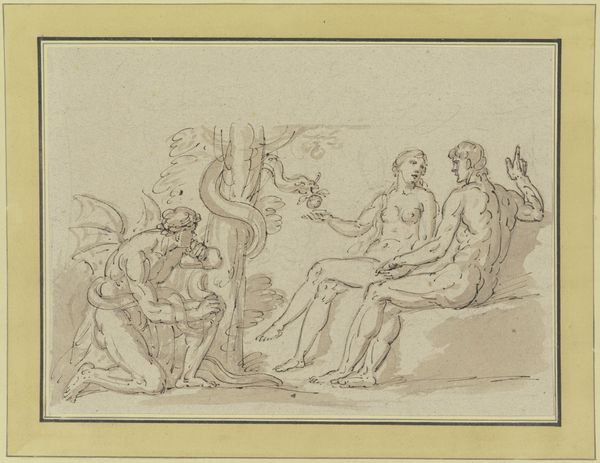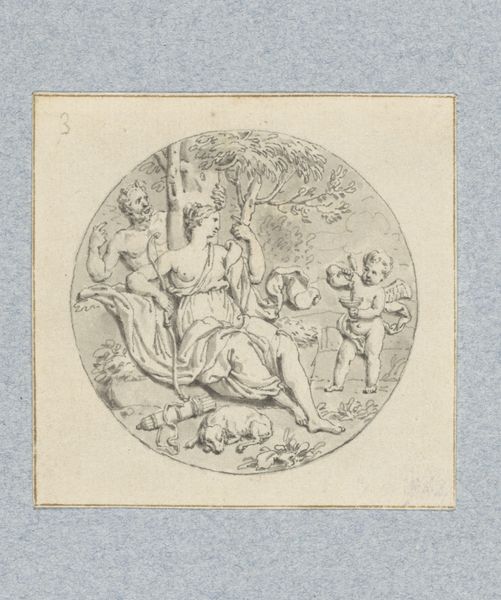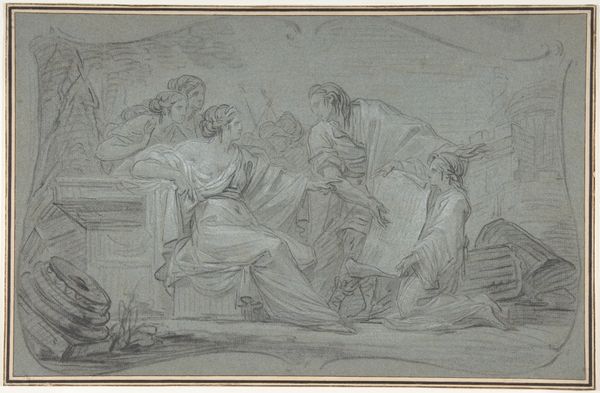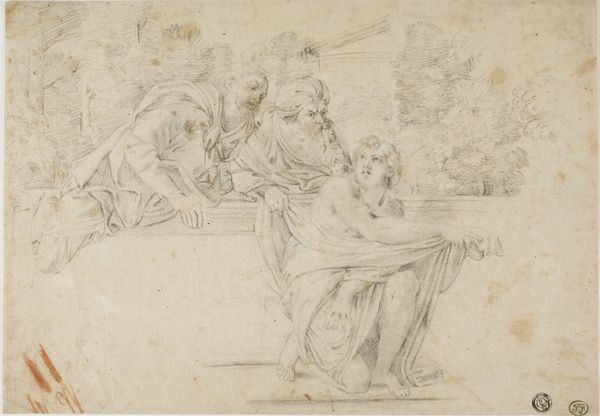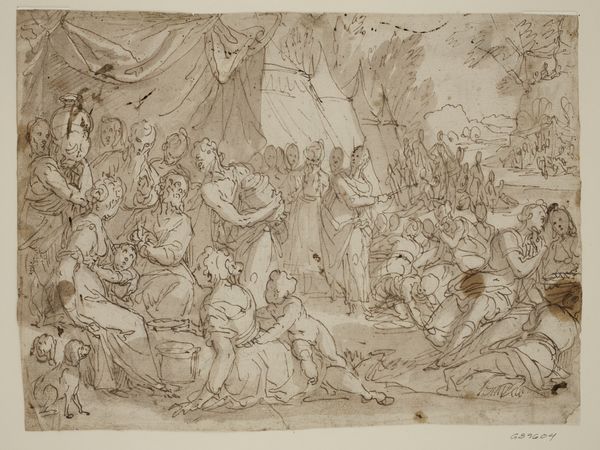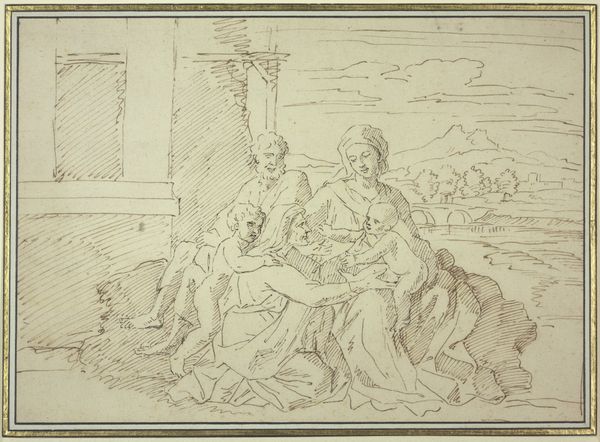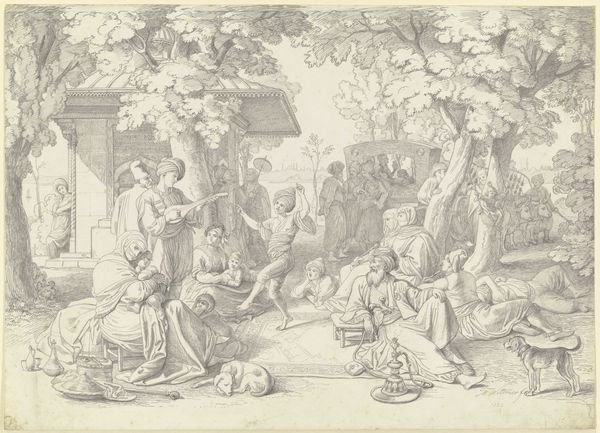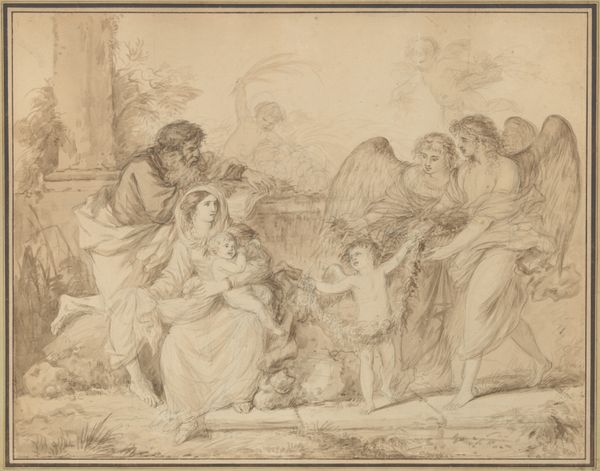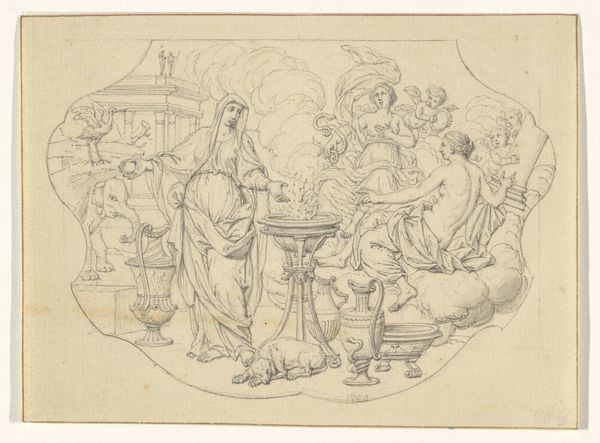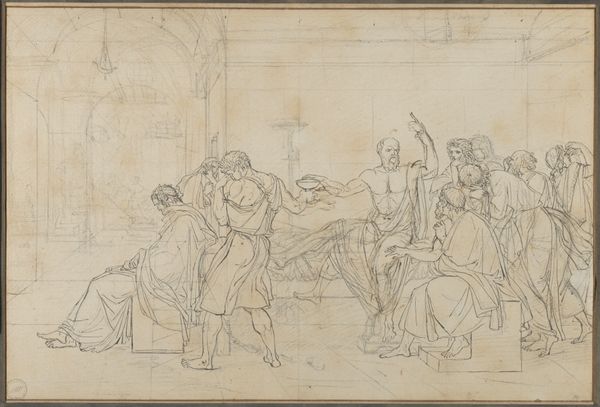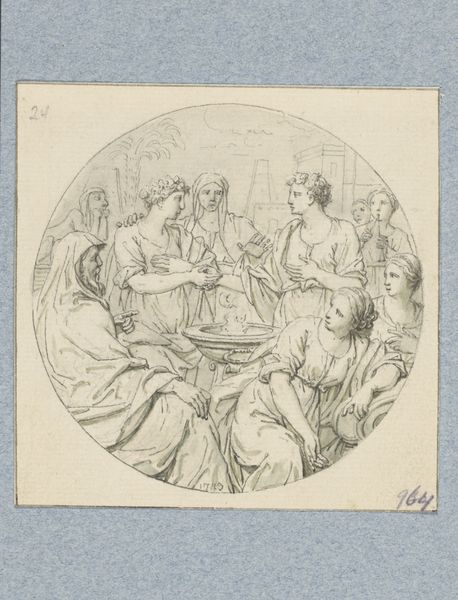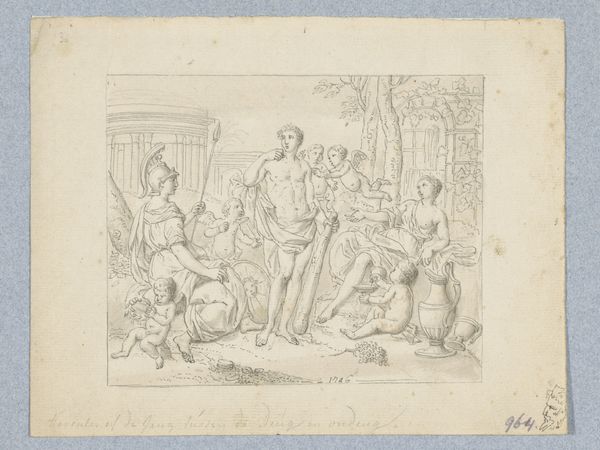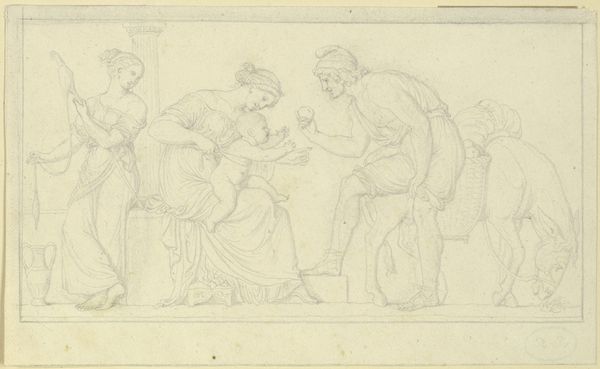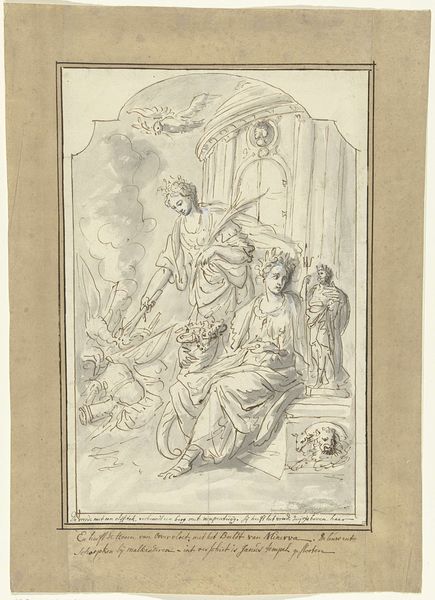
drawing, paper, pencil
#
drawing
#
comic strip sketch
#
aged paper
#
paper non-digital material
#
baroque
#
sketch book
#
traditional media
#
landscape
#
figuration
#
paper
#
personal sketchbook
#
sketchwork
#
pencil
#
sketchbook drawing
#
genre-painting
#
history-painting
#
storyboard and sketchbook work
#
sketchbook art
Dimensions: height 113 mm, width 158 mm
Copyright: Rijks Museum: Open Domain
Louis Fabritius Dubourg created this drawing of David and Bathsheba around 1763. The scene captures a biblical story, reflecting the artistic conventions and social mores of 18th-century Europe. The image depicts Bathsheba, surrounded by attendants, seemingly unaware of being observed by King David from a distance. In that time, the display of female nudity was often justified through mythological or biblical narratives, which served to titillate while ostensibly providing moral lessons. The architecture, classical in style, places the figures within a constructed, idealized space, reflecting the period’s fascination with order and reason. This drawing, now held in the collection of the Rijksmuseum, invites us to consider how art serves both the desires of its patrons and the cultural values of its time. To fully understand the work, scholars consult period texts on aesthetics, social histories of patronage, and the artist’s biography, tracing the complex interplay of art, power, and society.
Comments
No comments
Be the first to comment and join the conversation on the ultimate creative platform.
